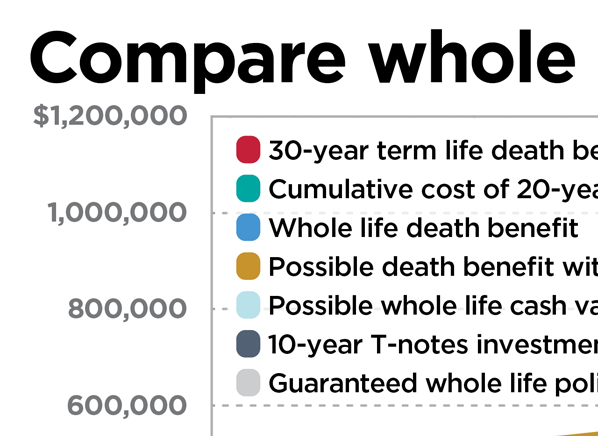For example, if a plan has an actuarial worth of 70%, then the insurance coverage business will pay about 70% of the total medical expenses for everyone covered by that strategy. Together, you and everybody enrolled in the strategy would pay the staying 30% of the overall costs. This does not suggest that you personally will pay 30% of your costs. Rather, this is a typical throughout everybody registered in the strategy. Your own expenses will differ considerably from this amount, depending upon just how much care you use. While actuarial value does not tell you precisely what you will pay, understanding it can help you select which level of strategy is right for your health needs.
Bronze strategies will have low monthly premiums, but if you get ill or have a mishap you will pay more in medical costs. Silver strategies are somewhat more economically protective and have an actuarial value of about 70% - What is term life insurance. Gold and Platinum plans have the greatest regular monthly payments however likewise are the most protective if you get ill or wyndham bonnet creek timeshare need a lot of healthcare: they have actuarial values of about 80% and 90%, respectively. As soon as you pick which level of protection is right for you, you can compare plans of a comparable value side-by-side. If your income is very limited, you may receive a cost-sharing aid if you sign up for a silver strategy (these subsidies are described more above).
Usually silver plans have an actuarial value of 70%, however with the cost-sharing subsidy, your silver plans' actuarial value will range from 73% to 94% (depending on your earnings). This means you will likely pay less when you go to the medical professional or hospital than you otherwise would with a silver plan. The Medical Insurance Marketplace Calculator estimates whether you may be eligible for cost looking aids. If you are likely eligible for a cost sharing aid, the calculator likewise reveals what your silver strategy's actuarial worth would be.
If there were no such thing as medical insurance, numerous Americans would be unable to get the care they require to live healthy lives. Fortunately, insurance does exist to assist settle the expense of treatment. But medical insurance comes at an expense-- namely, your premium. Your insurance premium is the amount you're required to pay every month for coverage under your medical strategy. Insurance coverage premium expenses can vary considerably based on the strategy at hand. If you're selecting your own health insurance, make sure to take note of not just its premium, but what that premium buys you.
The 20-Second Trick For When Is Open Enrollment For Health Insurance 2020
IMAGE SOURCE: GETTY IMAGES. Anybody who has health insurance likewise has actually a premium connected to that strategy, which represents the cost of coverage. Elders who enlist in Medicare likewise pay a premium for Part B, which covers preventative care, and Part D, which covers prescription drugs (What is an insurance deductible). When it comes to insurance premiums, you generally get what sell timeshare you spend for. For the most part, the lower your medical insurance premium, the less detailed coverage you'll get, and the more you'll run the risk of investing out of pocket. See, your premium is truly simply one component of your health coverage. On top of your premium, you'll likewise be accountable for extra costs, like deductibles and copayments, which can add to the overall expenditure of taking care of your heath.
The first has a $200 regular monthly premium however a $10,000 deductible, while the second has a $400 regular monthly premium but a $1,000 deductible. If you do not get sick often, and utilize that plan, state, once during the year to see your physician, you'll come out Click for source ahead by going with the plan with the cheaper premium. But if you get ill often, or get injured and need a $12,000 treatment, you'll come out ahead by picking the strategy with the more expensive premium. To find out what kind of plan is best for you, evaluate your medical spending from previous years and see how typically you tend to use your protection.
On the other hand, if you have actually been recently diagnosed with a health condition, or feel that your health is decreasing, it might make good sense to pay a higher premium however restrict your staying costs. If you work for a business that provides medical insurance, you may only end up contributing a portion of your premium yourself. It's often the case that companies will pay a portion (in some cases a big one) of staff members' premiums, and deduct the remainder from their incomes. But it's essential to get a sense of just how much your premium actually costs, since if you lose or leave your job, and desire protection under COBRA, you'll be on the hook for your whole bill.
